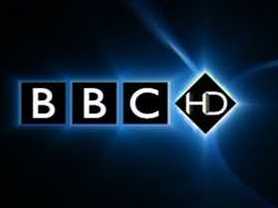BBC seeking wider HD Freeview roll-out
Ofcom confident that London et al will get HD by 2009

The BBC has asked Ofcom to start a consultation into whether Freeview HD can be brought to major television regions like London much faster than the current projected date of 2012.
Currently only the television regions that had been switched over to a fully digital service by 2009, like Granada, would be able to receive the DVB-T2 signals that enable HD programmes to be broadcast.
However, Ofcom has launched an investigation into whether an interim analogue solution can be found – meaning that much more of the UK would be able to start watching HD programming in 2009 if they have the relevant DVB-T2 decoding box.
"In July this year legislation came into force which empowers Ofcom to implement that roadmap; that is, to upgrade Multiplex B (operated by BBC Free to View Limited), and to enable the launch of three HD services on the multiplex," explains Ofcom.
Many UK viewers
"The launch is expected to commence with the Granada television region in late 2009, with rollout thereafter following the DSO timetable which completes in 2012.
"However, this means that some parts of the UK will not have access to the new Multiplex B services for potentially up to three years after they first launch."
Sign up for breaking news, reviews, opinion, top tech deals, and more.
Ofcom had already noted that an interim solution may be possible, and it was the BBC that requested that this option be explored.
"…the BBC requested that we consider temporarily assigning frequencies to enable a launch of the new Multiplex B services in some key areas ahead of DSO.
"This could materially increase the proportion of the UK's population that has access to the new services between 2009 and completion of DSO in 2012."
Confident stance
Although a consultation will now take place from Ofcom – the communications watchdog has already pointed out that the advantages of an early interim solution could far outweigh the costs.
Aside from the obvious benefits to the consumer of having access to HD television, Ofcom points out that a wider audience may well persuade more manufacturers to produce DVB-T2 enabled boxes and begin to bring the price down.
"Our analysis, informed by discussions with the BBC, other broadcasters and stakeholders, suggests the benefits to citizens and consumers of assigning frequencies to enable early launch are significant. The benefits, mainly to consumers, relate to early access to the new Multiplex B services sooner and to increased competition between receiver providers (potentially leading to a wider range of receiver product at lower prices).
"There are also likely to be producer benefits, to equipment manufacturers and to broadcasters although our analysis has not focused on these."
Rubber stamp
Ofcom's early indications are that they will rubber stamp the BBC's request – unless someone finds a serious flaw in its reasoning.
"We believe the benefits are likely to outweigh the costs associated with this policy including spectrum opportunity costs which we believe are low due to the circumstances of the frequencies in question.
"We are minded therefore to assign frequencies to enable the early launch of the new Multiplex B services ahead of DSO [Digital Switch Over], subject to availability."

Patrick Goss is the ex-Editor in Chief of TechRadar. Patrick was a passionate and experienced journalist, and he has been lucky enough to work on some of the finest online properties on the planet, building audiences everywhere and establishing himself at the forefront of digital content. After a long stint as the boss at TechRadar, Patrick has now moved on to a role with Apple, where he is the Managing Editor for the App Store in the UK.